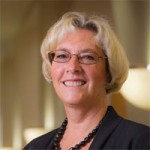This article is more than 5 years old.
OK, did I mention that the Women’s Leadership Institute is being held on Amelia Island, FL? What a lovely location. The weather has not been much better than at home, but the ocean view cures many ills. This conference has a “work-life balance” subtheme to it, so the sessions have been deliberately scheduled to leave time for walks on the beach, fitness, spa-time or shopping for those inclined. To make up for it, sessions are scheduled every night from 7-9 pm. I will admit that my German-Lutheran Midwestern work ethic barks back at me and it is hard for me to relax. I guess I have a lot to learn. I did take a short walk on the beach Sunday and a longer walk Monday, mostly because I am in training to walk the Kiawah half-marathon, along with a number of fellow ZSR Wake-OBXers. (If you don’t know what that means, ask Susan, who started the group.)
For Monday’s first concurrent session, I chose Mentoring and Coaching with Kathryn Deiss. She is from ACRL and I have heard her speak before. I was not disappointed. I did not really have a mentor in my career, but I would like to do a better job at both mentoring and coaching others, here at ZSR and elsewhere. Her first point was it’s not about you (the mentor), it’s about them (the mentee/protegee). (Sounds familiar, eh wot?) The difference between the two is that coaching is about improving performance with a short-term specific perspective. Mentoring is about tapping aspirations from a longer-term broad perspective. Mentors bring experience-based wisdom to the relationship, and it is entirely possible for a younger person with experience-based wisdom to coach an older person. Technology is a common example here. This was an excellent session and was one of the most highly rated at the Institute.
The second concurrent session was about Power and Influence – heady stuff. Power is the potential of an individual to influence another individual or group. Influence is the exercise of power to change the behavior, attitudes or values of that individual or group. As you might guess, but with notable exceptions, women have been historically reluctant to seize power and exert influence. In higher education, only 23% of positional leaders (college/university presidents) are women. Happily, the numbers are growing. Two powerful women presidents that I admire are Mary Sue Coleman from the University of Michigan and Amy Guttman at the University of Pennsylvania. We talked about Bolmen and Deal’s model of frames (they do this at the Harvard Leadership Institutes also). I came out high on the Political/Symbolic/Structural frames and relatively low on the Human Resources frame (hopefully that does not make me a bad person). We also covered unconscious derailers that often sabotage women seeking power and influence. These include familiar things like letting others speak first, needing to be liked, avoiding confrontation, apologizing, asking permission, smiling inappropriately, and on and on. We concluded by identifying action items to implement when we returned home. So look out world!
The final session of the evening was a discusison of our personal StrengthsQuest profiles. Many others at the Institute were familiar with it and had taken it before but this was the first I had ever heard of it. it is sort of like Myers-Briggs, but goes beyond personality typing (I am INTJ, as if you couldn’t guess) and speaks to building on personal strengths. The thing I liked best about this approach was the idea that you get much better results by focusing on a person’s strengths than by trying to correct their weaknesses. The facilitator said you really don’t get very far by marginally improving weaknesses, but you can get someone to soar from good to great by focusing on strengths. That made a lot of sense to me after 33 years in the library business. There are 34 themes in the StrengthsQuest program and my top five are…drum roll…Achiever, Relator, Responsibility, Strategic, and Learner. Leaders do well to intentionally surround themselves with direct reports who complement their strengths with other strengths, which I also thought made a lot of sense. I might investigate bringing this program to ZSR and using it in goal setting as it made a big impression on me.

4 Comments on ‘Women’s Leadership Institute (Monday)’
If anyone is interested in self assessing for Bolmen and Deal’s frames, here is an instrument:
http://www.leebolman.com/frames_selfrating_scale.htm
I found it to be an interesting approach to leadership. At the Harvard Leadership Institute they told us that the political and symbolic frames are the most important as one moves up the leadership ladder. So, well done, Lynn!
It sounds like you’re having a really good (and useful!) time! The sessions sound fascinating!
Ya know, if you think of walking on the beach as a strategic way to do better on your half marathon, you might enjoy it better. Make it work for you!
I’m really intrigued by the StrengthsQuest program and would be interested to see it brought to ZSR!